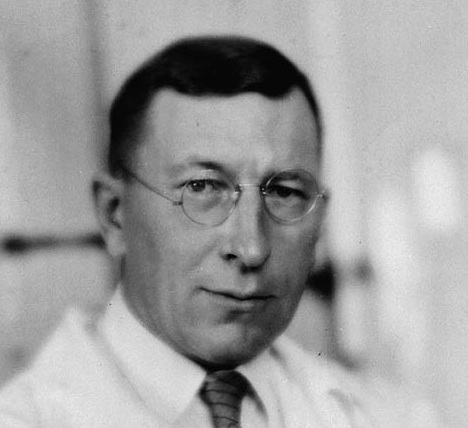World Diabetes Day: Who Is Sir Frederick Banting, And What Role Did He Play In Discovering Insulin?

Today, Google’s commemorative doodle recognizes Sir Frederick Banting, a Canadian scientist whose research into the hormone insulin eventually led to a drug for diabetes, a condition that was once untreatable.
Banting first became interested in diabetes, a condition where the body’s inability to create enough insulin causes unstable blood sugar levels, when he worked as a military doctor during the first world war, The Telegraph reported. Previous research had theorized that diabetes originated in the pancreas and might be due to deficiencies of a specific hormone — insulin. To test this, Banting removed the pancreas from a dog, ground it up, and gave it back to the dog a few times a day in the form of an injection. As a result, the dog did develop diabetes, but remained healthy with its daily injections. Soon after, Banting gave the same treatment to a young boy with diabetes. The boy drastically recovered, and not long after, the insulin shot became available for diabetics all over the world.
According to EndocrineWeb, insulin is a hormone made by the pancreas that allows your body to use sugar in the food you eat for energy, or to store glucose for future use. Insulin also helps sugar levels from getting too high or too low. For those with diabetes, insulin shots were created using pig pancreases up until the 1980s, but today the drug is grown using bacteria, The Telegraph reported.
Banting received a Nobel Peace Prize in Physiology or Medicine and received a knighthood for his contribution to the world of science. His work continues to help millions today; the World Health Organization says that in 2014, around 422 million people worldwide were diagnosed with diabetes. However, it’s believed that many more continue to live without a diagnosis. In addition, diabetes continues to be a major cause for blindness, kidney failure, heart attacks, stroke and lower limb amputation.
Read More:
Eating Junk Food Doesn't Mean You'll Develop Type 2 Diabetes, But It Probably Affects Blood Sugar All The Same: Read Here
Type 2 Diabetes Treatment Breakthrough: Intense Therapy Increases Median Lifetime By 8 Years, Study Shows: Read Here
Published by Medicaldaily.com



























